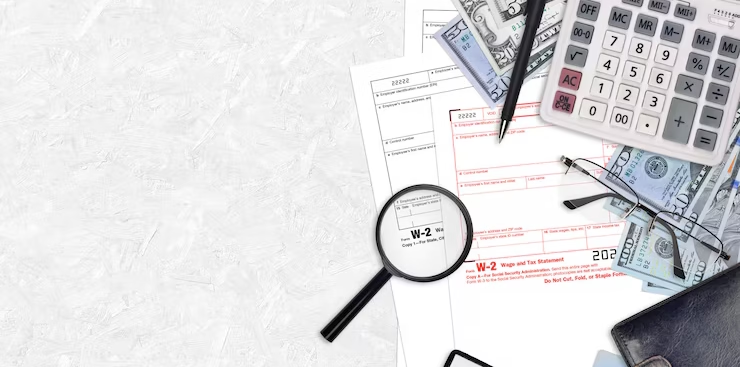In today’s rapidly evolving financial world, transparency, accuracy, and accountability have become critical components of any successful organization. Forensic accounting audits play a vital role in upholding these standards by offering an in-depth examination of financial records to uncover potential fraud, embezzlement, or misrepresentation. These specialized audits blend traditional accounting practices with investigative techniques to provide a clear and legally defensible assessment of an entity’s financial health. Whether it’s a corporate dispute, suspected financial crime, or compliance requirement, forensic audits serve as a cornerstone for maintaining financial integrity and supporting legal proceedings.
Unlike standard audits that primarily aim to verify the accuracy of financial statements, forensic accounting audits delve deeper into the intent behind financial transactions. They are often triggered by suspicions of irregularities, whistleblower allegations, or litigation needs. Conducted by skilled forensic accountants, these audits scrutinize detailed records, trace complex money trails, and apply analytical procedures to detect and explain discrepancies. Their goal is not only to identify fraudulent activity but also to provide insights that help organizations prevent future occurrences.
The relevance of forensic accounting audits has increased significantly in recent years due to the growing complexity of financial instruments, increased regulatory scrutiny, and heightened awareness of corporate misconduct. From small businesses to large multinational corporations, organizations across all sectors are recognizing the need for these investigative audits to protect their reputation and ensure compliance with legal obligations. In fact, courts often rely heavily on forensic audit findings when adjudicating financial disputes or prosecuting financial crimes.
Moreover, forensic audits are not limited to corporate environments. They are frequently used in divorce proceedings, bankruptcy cases, insurance claims, and inheritance disputes, where accurate financial assessments are essential for fair outcomes. This versatility makes forensic accounting audits an indispensable tool for both businesses and individuals seeking financial justice.
In essence, the importance of forensic accounting audits cannot be overstated. They provide clarity in uncertain financial situations, strengthen internal controls, and enhance organizational resilience. As financial crime becomes more sophisticated, the demand for expert forensic audits will only continue to rise—ensuring that financial misconduct is brought to light and that justice is served.
The Process and Importance of Forensic Accounting Audits in Modern Finance
Forensic accounting audits are more than just detailed financial reviews—they are investigative processes designed to detect, analyze, and report fraudulent or suspicious financial activity. These audits are typically initiated when there is suspicion of wrongdoing, and they are critical in both preventing and addressing financial misconduct. Unlike traditional audits that focus on compliance and accuracy, forensic accounting audits are purpose-driven, with a focus on identifying misrepresentation, misappropriation, or hidden assets.
How Forensic Auditing Works
The process begins with a clear identification of the scope and objectives. Whether it’s a corporate fraud investigation, matrimonial asset dispute, or financial statement manipulation, the forensic auditor tailors the approach based on the unique needs of the case. The first stage involves gathering all relevant documents—bank records, invoices, contracts, ledgers, email communications, and more. This is followed by a thorough analysis using both manual and digital tools.
One of the key techniques in forensic accounting audits is data mining, where financial records are analyzed to detect patterns, inconsistencies, or red flags. Forensic accountants use software and algorithms to sift through thousands of transactions, identifying anomalies that warrant further investigation. This often involves tracing fund flows, reconciling accounts, and verifying document authenticity. In some cases, interviews with personnel or third parties are conducted to gather testimonies or clarify discrepancies.
Ultimately, the findings are compiled into a detailed forensic report that outlines evidence, provides expert interpretations, and offers conclusions that can withstand scrutiny in a legal setting. This report may be used in court proceedings, settlement negotiations, or internal reviews.
Applications Across Sectors
Forensic accounting audits are used in a wide variety of scenarios across sectors. In the corporate world, they play a major role in uncovering financial statement fraud, procurement fraud, payroll fraud, and asset misappropriation. Internal auditors or compliance teams often initiate these audits to address discrepancies or in response to whistleblower reports.
In legal contexts, forensic audits are essential tools in litigation support. Attorneys rely on forensic auditors to provide expert witness testimony and evidence in cases involving economic damages, business valuation, divorce settlements, and shareholder disputes. Courts highly value these audits for their objectivity and rigorous methodology.
In the public sector and non-profits, forensic accounting audits help ensure accountability in the use of funds, particularly those received through grants or public funding. Mismanagement or diversion of funds can be exposed through these audits, restoring confidence in the organization’s governance.
Benefits of Forensic Auditing
The benefits of forensic accounting audits extend far beyond fraud detection. They enhance internal controls by identifying system vulnerabilities that could be exploited. This, in turn, leads to stronger governance and reduced risk exposure. They also support compliance with regulatory frameworks such as the Sarbanes-Oxley Act, the Foreign Corrupt Practices Act, and anti-money laundering laws, ensuring that businesses are protected from fines and reputational damage.
Furthermore, forensic audits often lead to financial recovery. By identifying lost or stolen assets, businesses and individuals may pursue legal action or insurance claims for restitution. They also serve a preventive function—just the awareness that forensic auditing may occur can deter potential fraudsters within an organization.
Why Organizations Should Act Proactively
In an era of increasing financial scrutiny, the proactive implementation of forensic accounting audits can be a game-changer. Businesses should not wait for red flags to emerge before taking action. Regular forensic assessments can reveal subtle signs of fraud or inefficiencies before they escalate into larger issues.
Whether you are a business owner, investor, legal advisor, or stakeholder, understanding the value of forensic accounting audits is essential. These audits do not just find the truth—they empower you with the knowledge to protect and grow your interest.
Conclusion
In conclusion, forensic accounting audits are essential for uncovering financial irregularities, enhancing internal controls, and safeguarding assets across various sectors. Their investigative nature provides clarity, accountability, and legal credibility in complex financial matters. Whether addressing suspected fraud, supporting litigation, or preventing future risks, these audits serve as a powerful tool for financial transparency and protection. As financial systems grow more intricate, the need for proactive and thorough forensic accounting audits continues to rise. Organizations and individuals alike must recognize their value and consider them a critical component of their financial strategy and long-term stability.
Move on with confidence
Secure your financial integrity today with expert-led forensic accounting audit services. Whether you’re a business owner aiming to protect your assets or a legal professional seeking precise financial insight, our team is here to support your goals. Don’t leave your finances vulnerable—take the proactive step toward transparency and accountability. Contact us today at (877)-399-2995 or visit Mortgage Audits Online to learn how our forensic accounting audits can empower your financial decisions. Secure your financial future with confidence!







